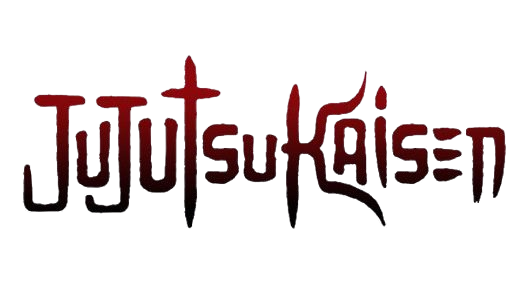Jujutsu Kaisen’s Ending, Explained: Final Chapter, Themes, and What It All Means
After over six years of intense battles, emotional storytelling, and philosophical depth, Jujutsu Kaisen, the globally acclaimed dark-fantasy manga by Gege Akutami, has finally reached its conclusion. The series ended with Chapter 271, released on September 29, 2024, closing the book on one of the most influential modern shōnen stories of our time. But what exactly happened at the end, and what deeper meaning lies beneath it all?
Here’s a complete breakdown of Jujutsu Kaisen’s final chapter, major plot resolutions, and the legacy it leaves behind.
Quick Recap of Jujutsu Kaisen’s Story
Before diving into the ending, let’s briefly revisit the story’s core. Jujutsu Kaisen follows Yuji Itadori, a kind-hearted teenager who becomes the host of Ryomen Sukuna, the King of Curses, after swallowing one of his cursed fingers. Thrust into the deadly world of sorcery, Yuji joins Tokyo Jujutsu High, where he fights alongside other jujutsu sorcerers to protect humanity from curses, manifestations of negative human emotions.
Throughout the series, JJK explores complex themes such as:
- The value of life and death
- The burden of power and responsibility
- Morality, where heroes and villains are often shades of gray
- The consequences of sacrifice
These ideas are central to the story’s conclusion and shape the emotional weight of the final chapters.
The Final Battle: Humanity vs. The King of Curses
The climax of Jujutsu Kaisen revolves around the ultimate confrontation between Yuji Itadori, Megumi Fushiguro, and their allies against Ryomen Sukuna, who emerges as the series’ final antagonist. After years of manipulation, destruction, and chaos, Sukuna’s plan reaches its endgame, a vision of a world consumed by curses and despair.
The final battle is one of the most intense and strategic fights in the series. It’s not just a physical confrontation but also a clash of ideologies: humanity’s will to protect and persevere against the embodiment of destruction. Every character, from veterans like Gojo Satoru to younger sorcerers, plays a role in shaping the outcome.
In the end, Yuji confronts Sukuna directly, symbolizing not just their intertwined fates but also Yuji’s acceptance of his burden. The victory is not without cost, sacrifices are made, lives are lost, and the world is forever changed.
Character Arcs: How Each Storyline Concludes
Yuji Itadori: From Ordinary Teen to Humanity’s Protector
Yuji’s journey comes full circle. Once an ordinary boy thrust into extraordinary circumstances, he grows into a hero who embodies the series’ central theme: the will to do good even when the odds are impossible. His final actions reflect his growth, courage, and unwavering empathy, proving that strength is not just physical but deeply emotional.
Megumi Fushiguro: Fate, Darkness, and Redemption
Megumi’s character arc, one of the most tragic and compelling in the series, reaches a bittersweet conclusion. Despite the darkness surrounding his path, Megumi’s choices ultimately underline the themes of free will, sacrifice, and redemption, even when haunted by forces beyond his control.
Satoru Gojo: The Legacy of a Sorcerer
Gojo’s role in the final chapters is both powerful and symbolic. Even in absence, his teachings, philosophy, and legacy guide the new generation of sorcerers. He remains a towering presence, not just as the strongest sorcerer but as a mentor whose ideals continue to shape the world.
Themes Behind the Ending: What It All Means
The ending of Jujutsu Kaisen is more than just the defeat of a villain, it’s a culmination of the series’ deepest messages:
- Strength is born from suffering. Many characters endure immense pain, but it’s through that suffering that they find purpose and growth.
- Good and evil are rarely absolute. Even villains like Sukuna are portrayed with nuance, forcing readers to question the nature of morality.
- Sacrifice gives meaning to victory. The final triumph is costly, but it underscores the idea that protecting humanity is worth every sacrifice.
- Legacy outlives individuals. The sorcerers’ fight doesn’t end with their lives, their will and ideals continue to shape the future.
The series ends on a note that’s neither fully happy nor entirely tragic. It’s bittersweet, a reflection of life itself.
What’s Next for the JJK Universe?
Although the manga is complete, Jujutsu Kaisen is far from gone. The anime adaptation, produced by MAPPA, is expected to continue adapting the final arcs, bringing the intense climax and emotional resolution to the screen.
Additionally, fans speculate about possible spin-offs, prequels, or light novels that might explore side characters or the history of the jujutsu world. While nothing is officially confirmed, the story’s popularity makes future content highly likely.
Final Thoughts: A Powerful Conclusion to a Modern Classic
Jujutsu Kaisen didn’t end with a cliché happy ending, and that’s exactly why it resonates so deeply. Its finale embraces complexity, sacrifice, and philosophical depth, staying true to the story’s tone from beginning to end. It’s a conclusion that rewards loyal readers with closure while leaving room for interpretation, discussion, and emotional reflection.
The series’ ending cements its place among the greatest modern shōnen manga, not just for its battles or world-building, but for the questions it asks about humanity, morality, and what it truly means to fight for others.
FAQ: Jujutsu Kaisen’s Ending
How did Jujutsu Kaisen end?
The manga concluded with the defeat of Sukuna after an intense final battle, bringing closure to Yuji’s journey and the main conflict of the series.
What chapter is the final one?
Jujutsu Kaisen ended with Chapter 271, released on September 29, 2024.
Will there be a sequel or continuation?
No official sequel is confirmed, but future spin-offs or related projects are possible given the series’ popularity.
